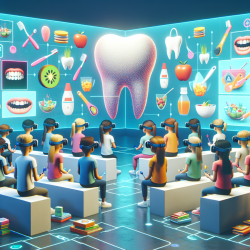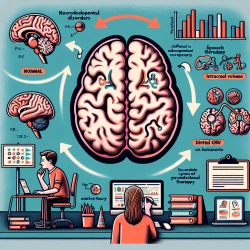The integration of metaverse technology into healthcare offers promising avenues for enhancing educational experiences, particularly in the realm of pediatric oral health. Traditional methods of teaching oral hygiene often fail to capture the sustained interest of young learners. However, the immersive and interactive nature of the metaverse presents a unique opportunity to engage children effectively.
The Potential of Metaverse in Oral Health Promotion
The metaverse is a 3D virtual environment that allows users to interact with digital content through avatars. This technology employs augmented reality (AR) and virtual reality (VR) to create immersive experiences that can be utilized for educational purposes. In the context of oral health, children can engage with virtual dentists, visit simulated dental clinics, and participate in gamified activities that teach them about dental care.
Benefits of Metaverse-Based Oral Health Education
- Increased Engagement: Interactive and playful learning environments help maintain children's attention and improve retention.
- Accessibility: Provides opportunities for children in remote or underserved areas to access quality oral health education.
- Personalized Learning: Tailors educational content to individual needs and preferences based on user interactions.
- Cost-Effectiveness: Digital platforms often require less investment compared to traditional educational resources.
- Anxiety Reduction: Familiarizing children with dental procedures in a virtual setting can reduce fear and anxiety associated with real-life dental visits.
Challenges and Considerations
- Access to Technology: Not all children have access to the necessary devices or internet connectivity required for metaverse participation.
- Lack of Human Interaction: The absence of face-to-face interaction may impact social learning aspects.
- Screentime Concerns: Excessive use of digital devices can lead to health issues; hence, balancing screen time is crucial.
- Implementation Costs: Developing high-quality digital content can be expensive.
Implementing Metaverse-Based Oral Health Programs
The successful implementation of metaverse-based programs requires strategic planning and collaboration among stakeholders. Here are some recommendations:
- Collaboration with Developers: Work with tech developers to create engaging and educational content tailored to oral health objectives.
- Curricular Integration: Incorporate metaverse-based learning into school curricula to reach a broader audience.
- Sustainable Access Solutions: Provide necessary resources in schools and community centers to enhance accessibility.
- User Feedback Mechanisms: Regularly collect feedback from users to refine and improve the program continuously.
- Diverse Access Methods: Develop alternative strategies for children without access to digital technologies, such as community workshops or mobile units.
The potential of metaverse technology in transforming oral health education is significant. By offering an engaging platform that combines learning with fun, it encourages children to adopt healthy habits that could last a lifetime. While challenges exist, they are not insurmountable with thoughtful planning and execution. As this field continues to evolve, further research will be essential in maximizing its benefits while mitigating any drawbacks.










